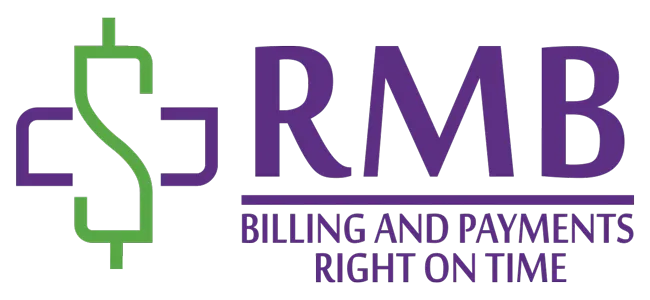Ambulatory Surgery Center Guidelines, CPT, ICD-10 Codes – Outsourcing Medical Billing to RMB
An ambulatory surgery center (ASC) is a specialized healthcare facility designed to provide surgical care to patients who do not require an overnight hospital stay. These centers are equipped to perform a variety of surgical procedures, typically of a minimally invasive nature, allowing for rapid patient recovery and discharge. The primary objective of an ASC is to offer a convenient, efficient, and cost-effective alternative to traditional hospital settings for outpatient surgeries.
Ambulatory surgery centers are characterized by their focus on patient-centered care, where the environment is tailored to enhance comfort and streamline the surgical process. They are staffed by skilled healthcare professionals, including surgeons, anesthesiologists, and nursing personnel, ensuring a high standard of medical care. The surgical interventions conducted in these facilities range from orthopedic surgeries to gastrointestinal procedures, all of which are performed under the supervision of licensed medical practitioners.
In addition to their clinical functions, ASCs contribute to the healthcare system by alleviating the burden on hospitals. By managing outpatient surgeries, they improve overall healthcare efficiency and are often associated with lower costs for both patients and insurance companies. This model of care not only enhances patient access to surgical services but also promotes a quicker return to daily activities.
In summary, an ambulatory surgery center is a healthcare venue that facilitates outpatient surgical procedures, fostering a patient-friendly atmosphere and contributing positively to the broader healthcare framework. Their role in advancing surgical care is critical, reflecting a shift towards more accessible and efficient medical practices.
Ambulatory Surgery Center (ASC) Medical Billing Guidelines
The healthcare landscape is continuously evolving, with Ambulatory Surgery Centers (ASCs) gaining prominence for their efficiency and effectiveness in providing outpatient surgical services. An integral component of ASC operations is the medical billing process, which requires precise adherence to guidelines, including Current Procedural Terminology (CPT) and International Classification of Diseases, Tenth Revision (ICD-10) codes. This essay will outline detailed ASC medical billing guidelines and the advantages of outsourcing ASC medical billing functions to a specialized third-party provider like Right Medical Billing.
Understanding CPT and ICD-10 Codes
Before delving into the medical billing guidelines, it is critical to understand the significance of CPT and ICD-10 codes in the billing cycle.
ASC CPT Codes
Current Procedural Terminology (CPT) codes are a set of medical codes maintained by the American Medical Association (AMA). These codes are used to describe procedures and services performed by healthcare providers. For ASCs, the usage of CPT codes is vital for billing purposes, as these codes communicate the specific services rendered during a patient’s visit. For example, a surgical procedure may be represented by a specific CPT code, such as:
- 20610 – Arthrocentesis, aspiration, and/or injection into a major joint or bursa (e.g., knee, hip).
- General Categories for ASC CPT Codes:
- Surgical Procedures (10000-69990): These include codes for procedures such as ENT surgeries, gastrointestinal procedures, orthopedic surgeries, and more.
- Radiology (70000-79999): Some radiologic imaging and diagnostic tests performed pre- or post-surgery are also covered.
- Pathology and Laboratory (80000-89999): Covers tests associated with pre- or post-operative care.
- Medicine (90000-99999): Includes anesthesia services and other general procedures provided alongside surgery.
- Modifier Usage
- ASCs often use specific modifiers like -SG (indicating ASC facility services), -TC (technical component), and others to clarify the nature of the service provided.
Ambulatory Surgery Center ICD-10 Codes
The ICD-10 codes, maintained by the World Health Organization (WHO) and the Centers for Medicare & Medicaid Services (CMS), classify diagnoses and health conditions. In the context of ASCs, accurate ICD-10 coding is essential for providing clinical information to support the services billed using CPT codes. For instance, the following is an example of an ICD-10 code:
- M17.0 – Bilateral primary osteoarthritis of the knee.
The interplay between CPT and ICD-10 codes is crucial, as the latter justifies the medical necessity of the procedures billed.
Detailed Medical Billing Guidelines
Patient Information Collection
The medical billing process begins with the meticulous collection of patient information. Essential details include:
- Full name
- Address
- Date of birth
- Insurance details (primary and secondary)
- Emergency contact information
Accurate patient information is necessary to ensure proper insurance verification and eliminate billing disputes.
Pre-Authorization and Insurance Verification
Prior to the patient’s surgical procedure, it is vital to obtain pre-authorization from the insurance provider. This process typically involves:
- Verification of Insurance Benefits: Confirm the patient’s coverage, deductibles, and co-pays.
- Obtaining Pre-Authorization: Ascertain that the planned procedure is covered under the patient’s insurance policy.
Comprehensive documentation of these communications is essential for reference during the billing procedure.
Procedure Documentation
The surgical team must provide complete and accurate documentation of all procedures performed. This documentation should include:
- Description of the procedure performed using the corresponding CPT code.
- Any modifications or complications encountered.
- Required ICD-10 codes that correspond to patient diagnosis.
Proper documentation is crucial for justifying the medical necessity of the services rendered and for compliance with billing regulations.
Claims Submission
Once the procedure is documented, the next step is claims submission. ASCs typically utilize specialized medical billing software to submit claims electronically to insurance providers. Essential components of a claim include:
- Patient demographics
- CPT codes for services performed
- ICD-10 codes for diagnoses
- Date of service
- Provider details
Errors in this stage can lead to claim denials, necessitating meticulous attention to detail.
Payment Posting and Follow-Up
After submitting claims, the ASC must track payments and post them in the billing system. This tracking includes monitoring:
- Payments received from insurance companies.
- Patient payments and outstanding balances.
If claims are denied or underpaid, timely follow-up with the insurance company is imperative to resolve issues and ensure appropriate reimbursement.
Benefits of Outsourcing ASC Medical Billing to Right Medical Billing
While ASCs may manage their billing internally, outsourcing to a third-party medical billing company such as Right Medical Billing offers several advantages.
Expertise and Specialization
Right Medical Billing employs professionals who specialize in ASC billing. These experts are well-versed in the intricacies of CPT and ICD-10 coding, compliance regulations, and industry best practices. Their specialized knowledge translates into fewer errors and increased efficiency in the billing process.
Cost-Effectiveness
Outsourcing medical billing can lead to significant cost savings. By engaging Right Medical Billing, ASCs can eliminate the overhead costs associated with hiring, training, and retaining an in-house billing staff. In addition, outsourcing can improve the rate of claims received in a timely manner, reducing overall operational costs.
Enhanced Revenue Cycle Management
Right Medical Billing provides a comprehensive approach to revenue cycle management. By ensuring claims are submitted accurately and promptly, the likelihood of receiving timely reimbursements increases. Their follow-up process on outstanding claims mitigates delayed payments, thereby enhancing the overall financial stability of the ASC.
Compliance Assurance
The healthcare industry is subject to rigorous regulations and compliance guidelines. Third-party billing companies, such as Right Medical Billing, are devoted to staying updated on regulatory changes and compliance mandates. Their focus on compliance ensures that ASCs avoid costly penalties associated with billing errors or non-compliance with billing regulations.
Technology Utilization
Outsourced billing companies often leverage advanced billing software and technologies that may not be feasible for ASCs to implement in-house. These tools streamline the billing process, enhance data accuracy, and provide valuable insights through analytics, thereby improving decision-making. Right Medical Billing LLC has its very own ASC Software to work on your billing needs.
Focus on Core Operations
By outsourcing the billing functions, ASCs can redirect their focus to delivering quality patient care. This strategic shift enables surgical teams to concentrate on improving surgical outcomes and patient satisfaction without the distraction of complex billing processes.
Final Takeaway
efficient and accurate medical billing is paramount for the success of Ambulatory Surgery Centers. Adhering to CPT and ICD-10 coding guidelines is central to the claims submission process and overall financial health of the ASC. Outsourcing medical billing to a specialized company like Right Medical Billing introduces numerous benefits, including enhanced expertise, cost savings, improved revenue cycle management, and enhanced compliance. By engaging with a third-party billing partner, ASCs can optimize their operations, allowing them to focus on their core mission: providing high-quality surgical care to patients.




